
Just over two years ago, I went to San Francisco to launch my book Pedro Zamora, Sexuality and AIDS Education, at the GLBT Historical Society. Just two days ago I came back from New York where I launched my latest book Heroism, Celebrity and Therapy in Nurse Jackie. While this seems like a roller coaster of production and travelling (with a lot of it all at my own expense!), in thinking about these two events, I was struck by the meaning of ‘place’ in research.
When I was in San Francisco, I was fortunate to not only be interviewed by the Bay Area Reporter, but also Alastair Gee interviewed me (who often writes in in the Guardian and The New Yorker). Alastair and I were in conversation for over two hours – outside the ‘Real World’ house – the place where Pedro Zamora had lived whilst filming the TV series, shortly before he died. Alastair mostly pressed me to explain my interest and connection with that particular location – ‘The Real World House’ – on Lombard Street, the most ‘crooked’ (winding) street in the world. The interview seemed more like a therapy session, where we also discussed the tragic event of the Orlando shooting incident that had occurred at Pulse Nightclub – just a few days before, where 49 people attracted to and/or part of the LGBT community were slain. Whilst Alastair didn’t eventually transform this interview into a published piece, this memory of the interview and the possible meaning of a particular place- relevant to research – still kind of ‘haunts me’.
Spin forward two years, and somehow, I am revisiting the notion of ‘place’, as I decided to launch my new book at the BGSQD bookshop, just a few yards from the now demolished St. Vincent’s hospital in Greenwich Village, New York. The reason for this was simple, in the book I hypothesize that the fictional hospital of ‘All Saints’ in Nurse Jackie was potentially inspired by ‘St Vincent’s’. This is not difficult to work out, as St Vincent’s was sold off after going bankrupt just a few years back, and then converted into luxury condominiums. Nurse Jackie references this, by ending the series with the closing of the fictional ‘All Saints’ hospital, where our (anti) heroine Jackie Peyton passes away just after the last patient leaves the building. Added to this Edie Falco the phenomenal actress who plays Nurse Jackie is a resident of New York, I believe living not that far from Greenwich Village.
So where does this leave us? I think as researchers we are haunted by notions of place, not only where we fit in the research, but where the research narrative is played out. Being near a place where there might be some emotional meaning in the research, connects us to our human condition. For me getting the chance to be near St. Vincent’s (or should I say where it used to be), was very moving indeed. Not only was this potentially the inspiration for the setting of Nurse Jackie (a wonderful story of morality, humanity and fallibility, by the way) but coincidentally St Vincent’s was the hospital that cared for Pedro Zamora not long before he passed way.
The original buildings may be gone, in the case of ‘the Real World house’ transformed into flats, and in the case of St. Vincent’s demolished and the space transformed into something quite different, no longer a life blood to support deprived community, everyday people and outsiders. As Tom Eubanks reports in his book ‘Ghosts of St. Vincent’s’: ‘Before the entitled lived here exclusively, the marginalized died in droves’. St. Vincent’s was not only the place where those who were dying of HIV/AIDS (in the early years of the syndrome) were cared for, when many didn’t care or were too scared, but also when the Twin Towers were attached on 9/11, this was the place of first response in caring for the wounded, it was central in caring for community.
After the book launch I wandered around the streets of St Vincent’s, occasionally catching a glimpse of the cathedral-like ‘Freedom Tower’ (the new World Trade Center), a powerful sense of absence pervades in our knowledge of the original towers and the media coverage of their collapse.
Place seems significant, not only in thinking about what it all meant, but also where to go next. Research in some ways is distanced from ‘actual place’ as we try to create a perspective that seems unbiased; this is often something we tell students. However, in many ways meaningful research is situated deeply within us, it’s part of our emotional universe, occasionally illuminating the possible places that we might go, or be drawn to.
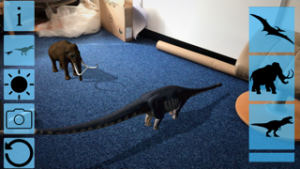 The PalaeoGo! Team is running a major user trial in the autumn of 2018. Over eight weeks this autumn we are seeking your help to both test and develop our ideas. Our aim is to give you access to our test app and with it the resources for you to use with your friends and family. The beasts are coming, and you can join in the fun!
The PalaeoGo! Team is running a major user trial in the autumn of 2018. Over eight weeks this autumn we are seeking your help to both test and develop our ideas. Our aim is to give you access to our test app and with it the resources for you to use with your friends and family. The beasts are coming, and you can join in the fun!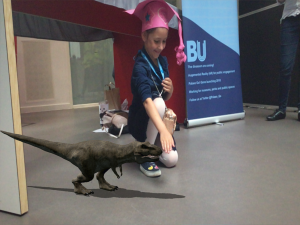 Register by the 21 September 2018 and you will receive the app during the week of the 24 September 2018. We will be on hand during Fresher fair and Induction to sign you up and show you how.
Register by the 21 September 2018 and you will receive the app during the week of the 24 September 2018. We will be on hand during Fresher fair and Induction to sign you up and show you how.

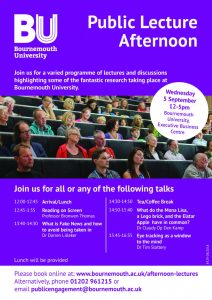
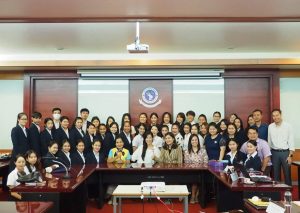
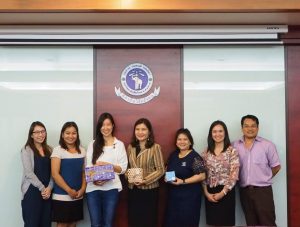
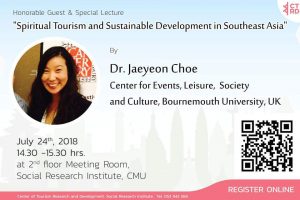
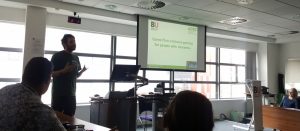
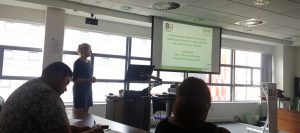

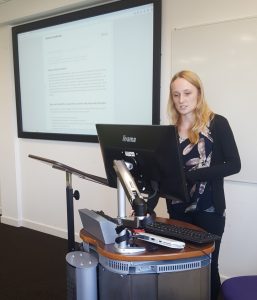

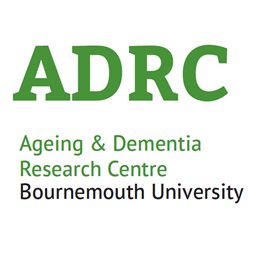
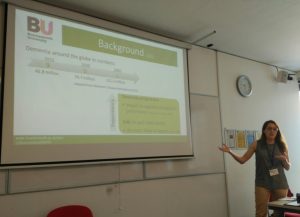
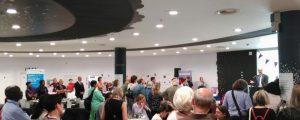






 Hai Luu (PhD student working with Prof Genoveva Esteban and Dr Iain Green in the Department of Life and Environmental Sciences, SciTech) travelled to her home country of Vietnam where she organised a seminar on microscopic life for 20 undergraduate students of the Aqua-Agriculture Faculty at Travinh University. Students collected samples from freshwater ponds, and observed the single-celled and other microscopic organisms that thrive in such habitats; they also studied their diversity in soil samples. Hai Luu gave a presentation about the diversity of organisms that constitute the unicellular protists, including micro-algae, protozoa, and slime molds. This event was a great opportunity for the students to recognise the biodiversity of micro-organisms in soils and fresh waters, and to understand the important role they play in food webs. The seminar was the first of its kind at Travinh University, and a unique opportunity to disseminate the research we do in this field at BU to a wider audience. Excellent feedback was received from the enthusiastic group of students.
Hai Luu (PhD student working with Prof Genoveva Esteban and Dr Iain Green in the Department of Life and Environmental Sciences, SciTech) travelled to her home country of Vietnam where she organised a seminar on microscopic life for 20 undergraduate students of the Aqua-Agriculture Faculty at Travinh University. Students collected samples from freshwater ponds, and observed the single-celled and other microscopic organisms that thrive in such habitats; they also studied their diversity in soil samples. Hai Luu gave a presentation about the diversity of organisms that constitute the unicellular protists, including micro-algae, protozoa, and slime molds. This event was a great opportunity for the students to recognise the biodiversity of micro-organisms in soils and fresh waters, and to understand the important role they play in food webs. The seminar was the first of its kind at Travinh University, and a unique opportunity to disseminate the research we do in this field at BU to a wider audience. Excellent feedback was received from the enthusiastic group of students.












 SPROUT: From Sustainable Research to Sustainable Research Lives
SPROUT: From Sustainable Research to Sustainable Research Lives BRIAN upgrade and new look
BRIAN upgrade and new look Seeing the fruits of your labour in Bangladesh
Seeing the fruits of your labour in Bangladesh Exploring Embodied Research: Body Map Storytelling Workshop & Research Seminar
Exploring Embodied Research: Body Map Storytelling Workshop & Research Seminar Marking a Milestone: The Swash Channel Wreck Book Launch
Marking a Milestone: The Swash Channel Wreck Book Launch ECR Funding Open Call: Research Culture & Community Grant – Application Deadline Friday 12 December
ECR Funding Open Call: Research Culture & Community Grant – Application Deadline Friday 12 December MSCA Postdoctoral Fellowships 2025 Call
MSCA Postdoctoral Fellowships 2025 Call ERC Advanced Grant 2025 Webinar
ERC Advanced Grant 2025 Webinar Update on UKRO services
Update on UKRO services European research project exploring use of ‘virtual twins’ to better manage metabolic associated fatty liver disease
European research project exploring use of ‘virtual twins’ to better manage metabolic associated fatty liver disease